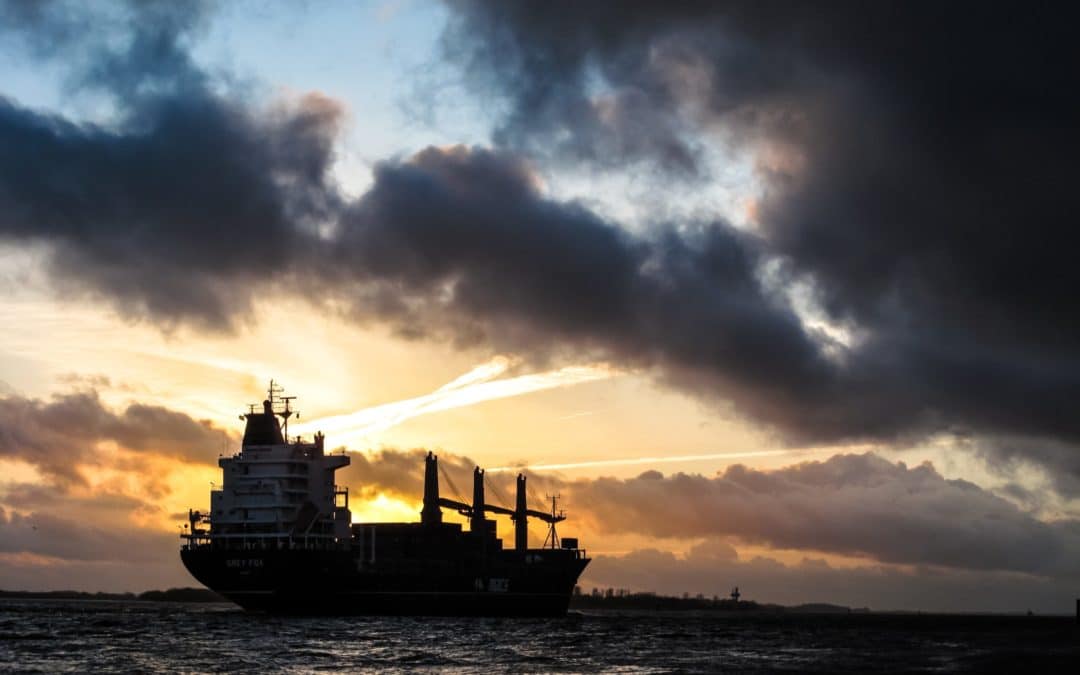As governments come together at the UN International Maritime Organization (IMO) to consider important next steps to decarbonise maritime transport, the global shipping industry urgently calls on them to take forward its proposal for an industry-financed, USD 5 billion research and development programme, to catalyse the transformation of the industry from dependence on fossil fuels to operating with zero-carbon energy sources.
“Meeting the ambitions of the IMO Greenhouse Gas reduction strategy requires immediate actions, which the IMO member states made very clear a few weeks ago. Now, we look forward to seeing the member states put weight behind their calls for action and advance our proposal, which can actually help the industry develop the technology needed to reach our decarbonisation targets,” says Deputy Secretary General Lars Robert Pedersen, BIMCO.
Although total emissions from shipping are about 7% lower than in 2008, there is a limit to what can be achieved so long as ships remain dependent on fossil fuels and global demand for maritime services continues to grow. The carbon reductions required by the IMO target of reducing total emissions from international shipping by at least 50% by 2050 compared to 2008, will only come from identifying and developing new zero-carbon technologies so that commercially viable zero-carbon ships can begin to operate in the 2030’s.
There are several potential solutions, such as hydrogen or ammonia produced from renewable energy sources, but these do not yet exist in a scale or form that can be applied to large ocean-going ships. A host of complex technical questions remain to be answered, including safety, storage, distribution, energy density considerations and lifecycle impacts. In short, we do not yet know what the fuels of the future will be.
The shipping industry has therefore proposed a USD 5 billion R&D programme, to be overseen by IMO and financed through a required R&D contribution of USD 2 per tonne of marine fuel consumed. The R&D programme would be managed through a non-governmental research and development organisation – an International Maritime Research and Development Board or IMRB. The co-sponsors emphasize that for the proposal to work, the R&D contributions need to be compulsory via an IMO regulation, to ensure that all shipping companies globally contribute, in a fair and equitable manner, and that the necessary funds will be generated to achieve the programme’s objectives.
A number of governments are understood to be positive to the proposal, subject to addressing issues such as governance.
The Industry is eager to work with governments to ensure that this initiative is implemented as soon as possible and calls on the IMO Marine Environment Protection Committee to support the development of the IMRB concept at its critical meeting starting November 16th. The IMO 2050 climate targets can only be achieved with the immediate acceleration of zero-carbon fuels and technologies, and the IMRB is a crucial vehicle for driving the progress needed to build a zero-carbon shipping industry.
Highlights of the International Maritime Research and Development Board (IMRB) proposal:
- The IMRB would be quasi-independent, subject to IMO Oversight, with the sole duty to accelerate the research and development of low-carbon and zero-carbon fuels, energy sources, propulsion systems and other new GHG reduction technologies, operating under a Charter approved by the IMO.
- An International Maritime Research Fund (IMRF) would provide industry financing for the IMRB research and development programmes, collecting about USD 5 billion over a ten-year period via contributions of USD 2 per tonne of fuel consumed by every ship.
- Other relevant stakeholders such as energy suppliers, technology companies, research and development institutions and foundations would be welcome to participate and contribute to the International Maritime Research Board and its work.
- The IMRB is designed to work itself out of a job in 10-15 years by delivering research and development projects that will then allow commercial entities to provide the technologies and services that will move proven technologies into the global fleet by the 2030s, so that the IMO target for 2050 can be achieved.
- The shipping industry organisations behind the proposal emphasise that the USD 2 contribution is not to be seen as a market-based CO2 reduction measure as it would only exist for a defined technical purpose – the acceleration of R&D for zero-carbon propulsion systems.

